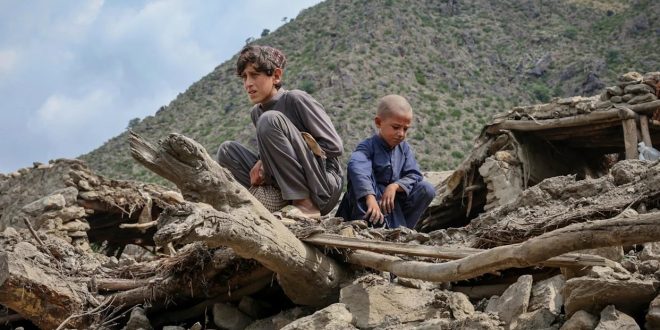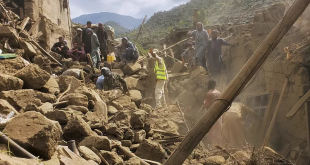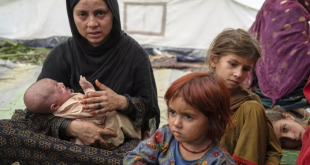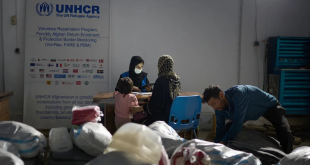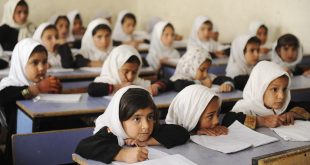KABUL – Afghanistan has been rocked by a third powerful earthquake in less than a week, deepening an already dire humanitarian crisis. The 6.2 magnitude quake struck the country’s south-eastern regions late Thursday, according to the Helmholtz Centre for Geosciences in Germany, following Sunday’s 6.0 quake and a 5.5 aftershock on Tuesday.
Authorities confirmed that the death toll from the initial disaster has climbed to more than 2,200, making it one of the deadliest earthquakes to hit the country in decades. Entire villages in mountainous Kunar province were flattened, with nearly all homes built from mud and wood destroyed. Aid agencies estimate that 98% of buildings in Kunar have been damaged or reduced to rubble.
Rescue teams are struggling to reach remote areas cut off by landslides and rockfall. Helicopters and army commandos have been deployed, but survivors say they remain trapped under open skies with little food, water or medical assistance. “The jolts are still happening. It is impossible to live there,” said Muhammad Israel, a resident whose home was buried in a landslide.
The United Nations and international aid groups warn that resources are running dangerously low. At least 84,000 people have been directly affected, many left homeless amid worsening drought and economic collapse. Relief workers say supplies of medicine, tents and clean water are already exhausted, while funding shortages have crippled emergency operations. The Norwegian Refugee Council said it has only $100,000 available for response, leaving a $1.9 million funding gap.
Doctors on the ground describe conditions as critical. “Neither these medicines are enough nor these services,” said Shamshair Khan, a physician at a UN medical camp in Nurgal. “These people need more medicine, food, tents, and clean drinking water. They are in great pain.”
The catastrophe comes as Afghanistan faces mounting pressures from a collapsing economy, the withdrawal of international aid, and the forced return of millions of refugees from Pakistan and Iran — leaving tens of thousands of families with nowhere to live or work.
 Afghanistan Times
Afghanistan Times
